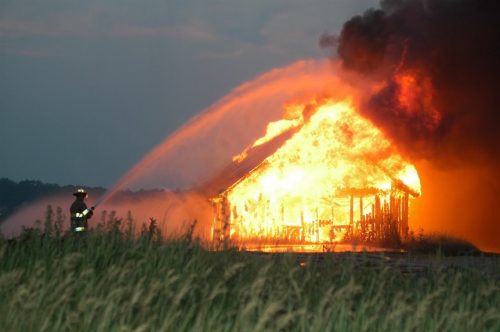
Regardless of the source, fires release fumes and particles into the atmosphere that are toxic to your health. In recent years, wildfires have made headlines in both the Americas and Europe, owing to the rising global temperatures attributed to climate change. The smoke from such wildfires has been known to spread and hurt the health of even those miles away. On the same note, damage from domestic fires can have similar consequences. Smoke is not good for your health. Take steps to avoid inhaling smoke at all costs.
Why Is Smoke From Fires Harmful to Your Health?
Smoke is a complex mixture of gaseous and particulate matter released when organic materials such as wood burn. The gasses vary from carbon monoxide, carbon dioxide, and nitrogen oxides to acid gasses depending on the burning material and oxygen available.
While any form of fire or smoke damage can be dangerous, fine particles in the smoke pose the greatest threat to human health. Given the tiny sizes of these particles, they can lodge in your lungs and trigger or exacerbate a series of respiratory disorders.
Acute exposure to smoke can lead to symptoms such as airway irritation, burning eyes, and aggravation of chronic disorders like asthma and heart diseases. Heavy smoke inhalation can even cause premature death.
Who Is at the Greatest Risk of Fire or Smoke Damage?
Some people are at a higher risk of suffering from the harmful effects of smoke than others. The following conditions make you more vulnerable to smoke damage:
- Chronic lung or heart disease, including asthma, emphysema, chronic obstructive pulmonary disease, heart failure and ischemic heart disease
- Old age, as the elderly are more likely to develop cardiopulmonary diseases than the young
- Pregnancy. Smoke will harm both the mother and the developing fetus as gasses like carbon monoxide impair circulation
- Children and teenagers. These subjects are very active, breathe more air per pound of body weight than adults, and are more prone to allergies, increasing their vulnerability
- Diabetes is often associated with chronic heart and lung diseases
Therefore, if you fall in any of the above categories, pay close attention to the local air quality reports whenever there’s a fire incident.
Signs and Symptoms of Smoke Damage to Health
Exposure to high smoke concentrations can trigger different symptoms, including:
- Burning eyes, throat irritation, cough, runny nose, difficulty in breathing, or wheezing
- Worsening of heart diseases, manifested by chest pains, fatigue, breathlessness and palpitations
- Exacerbation of chronic lung diseases, shown by increased deep breathing, gasping for air, phlegm and chest tightness.
Protecting Yourself During Wildfires
Whenever there’s an alarm for wildfires in your area, take the following steps to keep you and your family safe:
- Check out the local air quality reports. Local news media or state air agencies can keep you updated on the current developments and advise on appropriate action, including evacuation.
- Regulate activity. Monitor the situation and minimize or postpone some activities if it looks smokey outside. For instance, avoid highly active exercises such as evening jogs or runs when it appears smoky.
- Run the air conditioner. If you have an AC unit, run it with the fresh air intake closed and ensure the filter is clean to prevent bringing more smoke indoors.
- Stay indoors. When advised to remain indoors, keep the windows and doors closed unless it is very hot inside. Avoid vacuuming or using anything that burns, like gas stoves and wood fireplaces, to ensure the indoors remain as clean as possible.
Interesting Related Article: “How to Create your Fire Strategy Plan“

